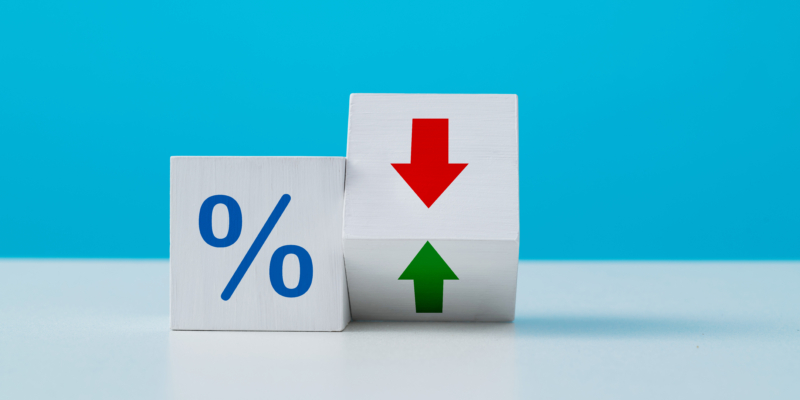Understanding Closing Costs
Welcome to a bright future, one where you’re buying a new home.
You can’t wait to grab the keys to your new home. But first – the closing! We’re going to give you the scoop on closing costs and how they work, because nobody wants an unwelcome surprise at the closing table (and because many homebuyers underestimate how much money they’ll need to cover these costs). While understanding closing costs can feel like a murky proposition (spoiler alert: it’s not), we’re here to break it all down so that you can have a smooth closing and then begin making memories in your new home.
So what are closing costs?
The term “closing costs” may seem a bit vague but is essentially straightforward. These are the costs incurred at the closing of your mortgage (over and above your property’s purchase price). They aren’t part of your down payment, and they do need to be paid during the home closing transaction. Common examples of closing costs include the following:
- Loan origination fees
- Underwriting fees
- Real estate agent commissions
- Home appraisal and inspection fees
- Title and record searches/filings
- Closing attorney fees
- Homeowners insurance premiums
- Real estate property taxes
- Credit report charges
- Any other fees and expenses incurred in the transaction
Your exact closing costs will depend on factors such as the type of loan you choose and where you live, but they typically run anywhere between 3 – 6 percent of your approved loan amount, meaning if you have a $200,000 mortgage, your closing costs could range from $6,000 to $12,000. Closing costs are part of the lending process whether you buy a home or choose to refinance an existing mortgage. While no one looks forward to additional costs, understanding these costs will make the final stages of your home buying or refinance process much easier.
Why are closing costs even necessary?
Throughout the home buying process, multiple third parties, including your mortgage lender, inspector and real estate attorney, act on your behalf to help finalize your home loan. These professionals perform services throughout each stage of the real estate transaction. For example, title searches incur fees but ultimately help protect your investment in your home by ensuring that you have clean title to it. Additionally, some loan products and some states require specific types of inspections (and thus fees) above and beyond the standard home inspection – also a level of protection for the buyer.
Who usually pays for the closing costs?
Both the buyer and seller may be responsible for various closing costs, though typically most of these costs are the responsibility of the buyer. The seller is responsible for the real estate commission and potentially the transfer taxes and title preparation fees. Home Owner Association (HOA) transfer fees are usually covered by the seller as well, while escrow fees, which are a portion of closing costs that are paid directly to an escrow or title company to conduct the closing, are often split between the buyer and seller. Some costs may even be absorbed by other (third) parties, depending on the loan product. As an example, with VA loans, there are limits to what buyers will have to pay in closing costs, which are government benefits for Veterans and active-duty military. You can learn more about VA-backed loan programs or check out the VA website to get more details on VA loan closing costs.
Ultimately, it’s a matter of negotiation between the buyer and seller, and your lender and/or real estate agent can assist you with these conversations. These negotiations, called seller concessions, can be particularly beneficial if you’re concerned about having enough money to cover closing costs. Often times, a motivated seller is willing to help cover some of these closing costs out of their home equity proceeds.
How much will I have to pay in closing costs?
Within three business days of submitting your loan application, your lender is required by law to provide you with a Loan Estimate (LE), an important document that details the estimated closing costs. Take your time, read it over carefully and reach out to your lender with any questions. Then, three business days prior to your loan closing and grabbing those new house keys, you’ll receive a Closing Disclosure (CD). It may show slight fluctuations from the original LE but there shouldn’t be anything unexpected. If you do see a significant change between the LE and CD, talk to your lender or real estate agent right away.
How can I reduce my closing costs?
We get it – you’d love to avoid closing costs all together. While this is (unfortunately) not an option, there are some ways you can potentially reduce your closing costs.
Shop around.
You’re in the driver’s seat, and you get to choose which lender you want to use. Contact multiple lenders and comparison shop. Look for one with competitive rates and lower fees.
Close at the end of the month.
Some closing costs are calculated by prepaid daily interest charges, which can be reduced when closing late in a calendar month. Your lender can advise you on this, and prepaid daily interest charges may be limited by applicable state law.
Take advantage of a buyer’s market.
If you have a motivated seller (perhaps one whose home has been on the market for a while), they may be willing to help cover some of your closing costs. It never hurts to ask! And if you buy a “for sale by owner” property, the seller avoids realtor commission fees. Use this fact to help negotiate seller paid closing costs to lower your own out of pocket closing expenses.
Ask your lender if closing costs can be financed into the loan.
Caveat: This is not necessarily ideal in the long run, as the cost of absorbing closing fees into the loan means you’ll have higher interest rates, so proceed with caution here and do the math on the risk-reward to your personal financial situation
Pay cash.
This isn’t an option for most of us, but if you can buy a home with cash (not requiring lender financing), you’ll substantially lower many real estate transaction closing costs.
If you can’t pay cash, try making a 20% down payment on the home purchase.
That way, you may not have to pay for private mortgage insurance, which is part of your closing costs and subsequent monthly payments.
And More Good News
AmeriSave is an advocate for American homeowners, looking to help you get the right mortgage and the right rate to improve your long-term financial health. Our mortgage bankers are keenly focused on borrower needs, so talk to them about not only closing costs but the mortgage process in general. Also, by offering some of the lowest rates in the industry, we can help our customers dream a little bigger – and have a brighter future.







